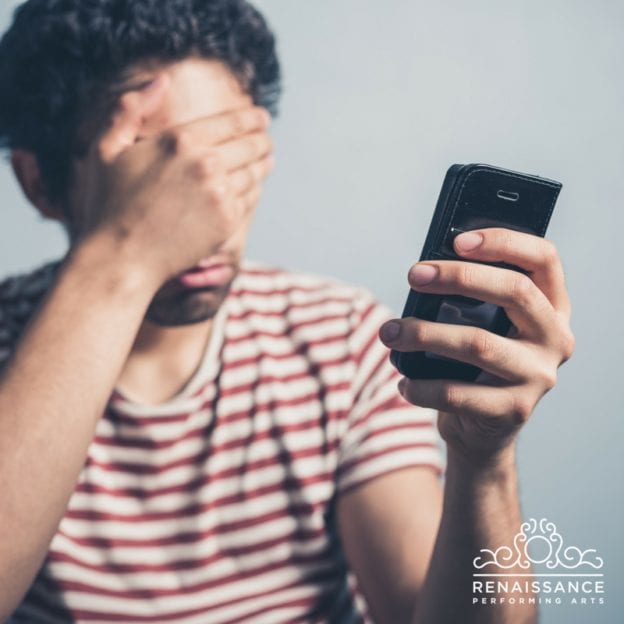
By Colleen Cook
I used to pride myself in my ability to multitask. I could be watching a show on TV, making dinner, discovering a new recipe, checking email, replying to a text, and carrying on a conversation with my husband all at once - what a marvel!
Yet, what I'm feeling is anything but "marvelous." I feel tired, exhausted by the constant stream of information and ideas and notifications. I feel like I never have time to do anything. I have a friend who recently reined in her habit of checking social media throughout the day to only once per day and she was able to read 10 books in a month in that same time.
The longer we live with devices in our hands and our pockets, though, it seems that ability to "multitask" is just a recipe for overwhelm and disengagement. When you're doing everything, you're focusing on nothing. No one gets your full attention, you're engaging with the world in a way that is broad, but extremely shallow.
While many of us can remember a time before the internet, we are quickly approaching a world in which the adults have never lived without digital technology as a part of their everyday life. Michael Harris writes about this in his book The End of Absence: Reclaiming What We've Lost in a World of Constant Connection and in this Huffington Post Article, "Why We Must Teach Digital Natives How to Be Alone:"
"Emily, 13, wakes up and rolls over to kiss her smartphone good-morning. Not an actual smooch, naturally, but a virtual kiss of attention, a kiss of grazing fingertips as she calls up 34 missed messages. The swarms of comforting "contacts" deliver new material -- texts about a sleepover, photos of Slurpees, links to new cat videos -- and the possible solitude of the morning is banished. The question that drives her is not "what shall I do today?" The question (more passive) is: 'what did I miss?'"
The reality is, we've only had the internet in our pockets for less than a decade, and the generations living today haven't yet developed best practices for moderating this luxury, so what's happening is a form of digital obesity - we over-indulge in this endorphin-releasing technology and when we do that, we're missing out on the real life right in front of us. Psychologists and neurologists are finding evidence to exactly this:
Psychologists have hypothesized that the constant demands of emails, notifications, and general busy-ness put a significant burden on the prefrontal cortex of the brain, the region involved in multitasking and higher-order thinking (like critical thinking and problem solving). Those small demands add up to drain our attentional resources, making us distracted and cognitively fatigued—which in turn makes it more difficult to focus, think deeply, and come up with new ideas. - Carolyn Gregoire, "The New Science of the Creative Brain on Nature"
When you come to the theatre, we implore you, "Please silence your phone," for a very practical reason: it's disruptive to our performance to have noisy, shiny devices going off among a crowd of hundreds. But, maybe the performing arts have had this right all along. Perhaps our constant connection is disruptive to our day-to-day, and it's time to put our devices in their place.
When we turn off our phones, spend time with those most dear to us, and simply engage with a piece of art, it's like giving ourselves a breath of fresh air. It's allowing our brains for once to "uni-task," to disconnect, to be fully present in time and space with the people we love. And, our children depend on us learning the values of silence, solitude, togetherness, and full engagement so that they might be passed down to future generations.
Further listening: one of my favorite podcasts, Sorta Awesome, has a great episode talking about this topic that you can check out here.